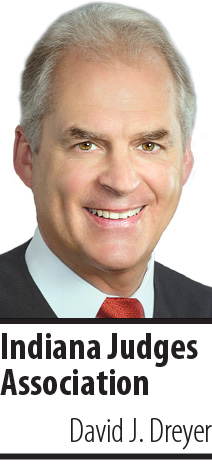Subscriber Benefit
As a subscriber you can listen to articles at work, in the car, or while you work out. Subscribe Now “The more that you read, the more things you will know. The more that you learn, the more places you’ll go.” -Dr. Seuss
“The more that you read, the more things you will know. The more that you learn, the more places you’ll go.” -Dr. Seuss
When I was a kid, I would watch TV for hours on end, like all my friends. Every so often, my mother would walk in, stand in front of the TV and ask, “Have you read a book today?” She always feared the long-reaching effects of video addiction. How right she was. Years later as a college student, I studied the “great books.” They are identified and accepted over the years as essential works that form the basis of Western thought and culture. So books like “Don Quixote,” “War and Peace,” Plato’s “Republic,” Pascal’s “Pensées,” “The Wealth of Nations,” Descartes’ “Meditations” and even Karl Marx were shared and discussed so that students could benefit from whatever scholars found that made the books so great. As a result, I developed skills of analysis, critique and creative thinking — or so I thought.
Going to law school seemed to delay this progression. I did not read a book for years. Over time, I made myself look for books that were worth reading at least once a year. I would review the National Book Awards, Pulitzer Prizes and several top 10 lists to pick a book or two that seemed to emerge as a consensus great book for the year. I do not recall reading many books related to the law or lawyers or judges. Maybe legal authors were just busy like I had found myself. Or maybe there are books for us out there that we never found. Or maybe we lawyers and judges just do not know the books we should be reading, whether or not they are exactly about law.
Last year, the National Judicial College surveyed judges regarding their recommended books. Some of them, like “To Kill a Mockingbird,” are no surprise. But the one most commonly identified was “Caste: The Origins of Our Discontents” by Isabel Wilkerson. It was written in 2020 by a nonlawyer journalist about specific features of society that enable inequality, particularly between races. How did so many judges know about this book? How am I missing out? Others include:
• “Just Mercy” by Bryan Stevenson: A 2014 memoir by a lawyer representing disadvantaged clients.
• “Eulogy of Judges” by Piero Calamandrei: A 1936 collection of anecdotes and observations about the legal system from an Italian lawyer “with quiet wit.”
• “Reflections on Judging” by Richard Posner: A 2013 diatribe against purported needless complexities of the U.S. legal system, including legal jargon, judicial opinion formalism and even The Bluebook itself.
• “The Undoing Project” by Michael Lewis: This 2016 book, from the author of “Moneyball,” “The Blind Side” and other notable nonfiction works, recounts the story of two scientists who earned worldwide recognition for their studies of how human brains solve complex problems. It’s recommended for judges and lawyers by some critics.
• “Catch-22” by Joseph Heller: A famous 1961 novel about the inherent contradictions of bureaucracies, rules and regimens.
• “Ten Lessons for a Post-Pandemic World” by Fareed Zakaria: The well-known CNN host/journalist expounds his ideas in this 2020 work about how we should view the immediate future and its obvious challenges. Critics found it to be original and optimistic.
My own humble experience does yield some further suggestions for great books for lawyers and judges. Believe it or not, the Book of Judges in the Old Testament is not a misnomer. If you can stay with it, it is a history of roughly six judges who save people from oppression during the time between the conquest of Canaan and the establishment of a Jewish kingdom under David and Solomon. One can see parallels with the struggles of modern judges. A 2013 book by George Saunders, “Tenth of December,” is a collection of short stories that present a unique tone and perspective covering some darkness with engaging humor. For us lawyers and judges, it pushes the envelope edges of our formalistic minds in a refreshing way.
We should aspire to fulfill my mother’s bidding. In fact, I should go so far as to write a book myself, for and about judges. That way I will know that all those hours of TV have had no lasting effect. My book might be called “Confessions of a Reluctant Judge.” I think such a title would arouse sufficient interest. I’m not really a reluctant judge, but I do think judges are best when they act with prudence and deliberate caution. My memoir would cover stories (sleeping lawyers), complaints (appellate substitution of a trial court’s judgment), ideals (civil right to counsel) and advice (schedule noncomputer time each day). Maybe I’ll even include some judicial yoga poses for mindfulness.
Overall, there is no substitute for reading. As Harry Potter author J.K. Rowling once said: “I don’t believe in the kind of magic in my books. But I do believe something very magical can happen when you read a good book.” Or a great one.•
• Senior Judge David J. Dreyer presided as a judge for the Marion Superior Court from 1997-2020. He is a graduate of the University of Notre Dame and Notre Dame Law School and a former board member of the Indiana Judges Association. Opinions expressed are those of the author.
Please enable JavaScript to view this content.
